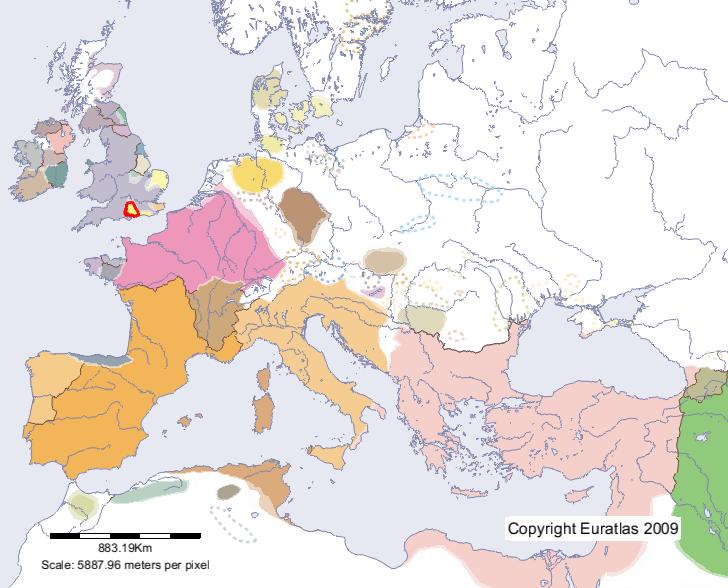Established in 70 AD on the site of an abandoned Iron Age hill fort, Venta Belgarum was the civitas, or capital, of the Celtic Belgae tribe who territory covered much of modern-day Hampshire in southern Britain. Venta Belgarum appears to have been a thriving and prosperous Romano-British town. An earth bank and ditch had encircled the town by the second century and stone city walls were erected a century later. Archaelogical excavations have revealed that Venta Belgarum had many fine Roman townhouses complete with mosaics, large public buildings and temples dedicated to the Roman gods Jupiter, Juno and Minerva as well as the Celtic horse goddess, Epona. Outside of the city walls were extensive suburbs as well as two large Romano-British cemeteries to the north and west.
 |
| A mosiac from one of Venta Belgarum's townhouses, now in Winchester museum |
However, Venta Belgarum did not escape the general decline that Britain suffered in the fourth century as the Roman Empire began to collapse. Houses and public buildings began to fall into disrepair and the drainage system collapsed. Testament to the increasing threat of Germanic raiders (and possibly on the advice of Constans who made a short and unusual visit to Britain in 343 AD), the city's defences were strengthened and there is archaeological evidence for the presence of laeti, South German mercenaries, who helped defend Venta Belgarum in return for land outside the city.
 |
| A map showing the territory of the Belgae tribe and the later Romano-British kingdom of Caer Gwinntguic |
By the early fifth century, Venta Belgarum and it's surrounding territory had become Caer Gwinntguic, a sub-Roman British territory tasked with defending the westernmost section of the Saxon Shore. The 420s and 430s saw a second settlement of laeti, this time from North Germany and almost certainly Saxons. Jutish settlement to the east posed a potential threat to the territory but peaceful relations appear to have been quickly established, possibly due to the low numbers of the newcomers and/or integration with the long-settled Germanic mercenaries.
For the next chapter in the story, see Caer Gwinntguic.
No comments:
Post a Comment